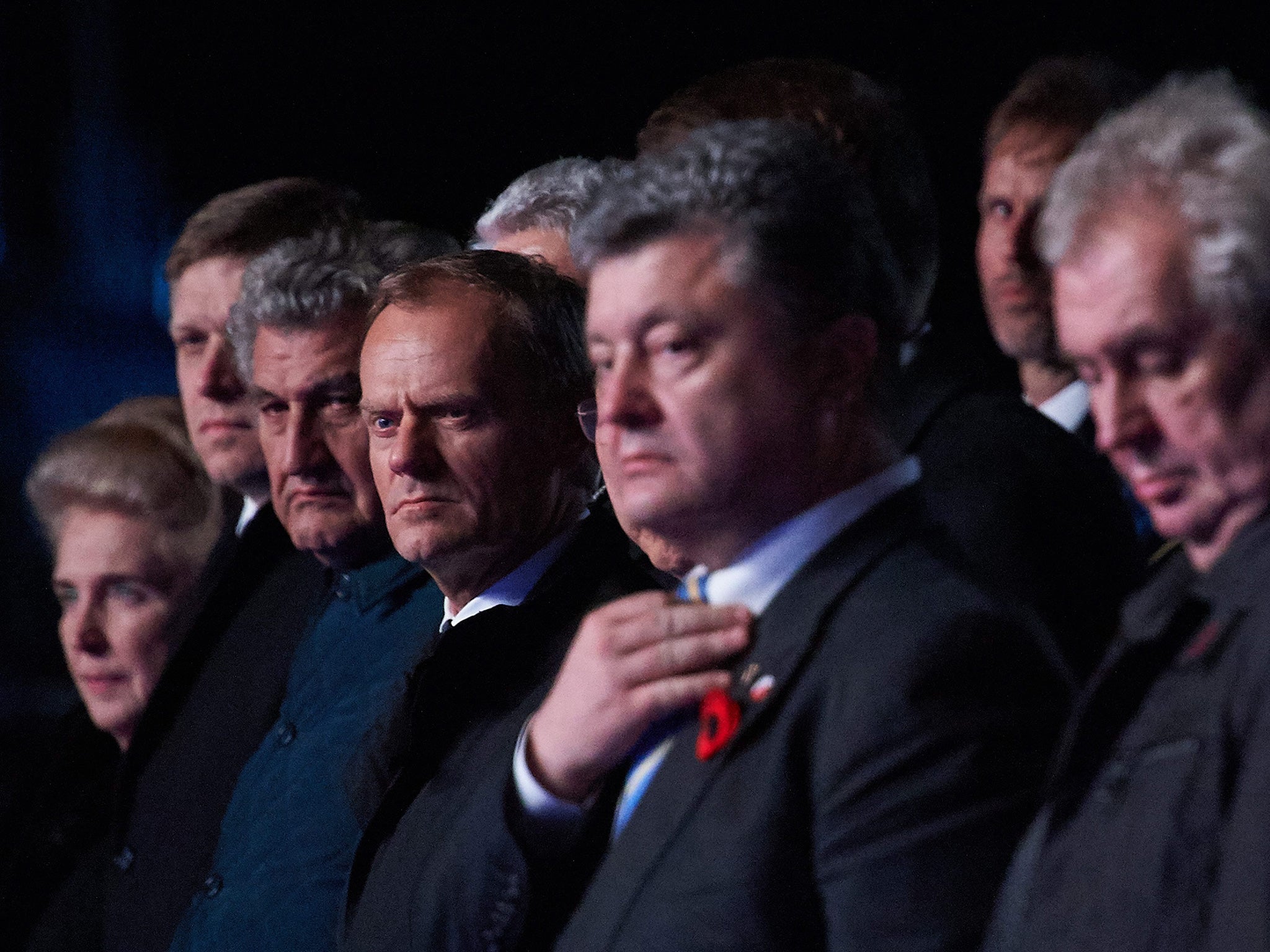Poland: Europe’s victims of Soviet occupation find no reason for celebrations
Central European countries gather in Poland for sombre ceremony

The leaders of a swathe of Europe freed from Nazi occupation by the Red Army gathered in Poland to commemorate the end of the war, but there was little in the way of celebration.
At the official ceremony at Westerplatte, the spit of land in Gdansk where the very first shots of the Second World War were fired, as the clock struck midnight and ushered in 8 May, Polish artillery fired a salvo in salute, trumpets sounded a fanfare and that was that.
Devoid of pomp, the sombre atmosphere reflected central Europe’s ambivalent attitude to the end of the European war. While Poles, Czechs and other nationalities recognise the huge cost Soviet forces endured in their defeat of Germany, they resent the fact the same forces brought with them another form of occupation and a system of political subjugation that remained in place till the Berlin Wall came crashing down in 1989.
“For Lithuanians, Poles and others in central Europe, the war did not end on 8 May. We suffered from a new occupation, a new dictatorship and new atrocities,” Dalia Grybauskaite, the Lithuanian President, told the Polish press before the ceremony, adding that some 300,000 Lithuanians had been imprisoned or sent to the gulags by the Soviet “liberators”.
In recognition of some of the victims of Communist repression, earlier on 7 May, a group of leaders, including the presidents of the Czech Republic, Romania, Ukraine, Estonia and Bulgaria, visited a memorial in Gdansk to 42 shipyard workers massacred by state security forces in 1970.
The Ukraine war and Russia’s annexation of Crimea have also added poignancy to commemorations in Poland. The country has always viewed their giant neighbour with suspicion, and now fears of an apparently revanchist Russia under Vladimir Putin make for an unsettling combination when mixed with memories of the war and post-war repression.
“The war in Ukraine does not let us forget that in Europe there are still forces reminiscent of the darkest days of the 20th century, which do not respect the rule of law and civilised relations between nations,” said Bronislaw Komorowski, the Polish President and a former anti-Communist dissident, during a speech at Westerplatte.
“Ukraine expressed its desire to forge closer ties with Europe, for its people to live a normal life in dignity and freedom, but its stronger neighbour responded through the use of force and changing borders,” he continued.
“This is something we have not seen in Europe since 1945. That is why it is hard for us to celebrate with joy the end of the war in Europe 70 years ago.”
Across Poland, Soviet-era statues and memorials are slowly being removed from public places and relocated in museums and war cemeteries. Earlier this year, the Russian embassy in Poland protested after Warsaw’s government voted against the return of a statue featuring four Soviet soldiers to a prominent square in the city.
Join our commenting forum
Join thought-provoking conversations, follow other Independent readers and see their replies
Comments